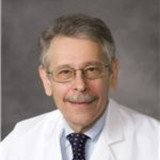The continued threat of evolving COVID-19 variants did not dissuade the Cardiology Community from participating in one of the first and largest general cardiology meetings to date to return in person after more than two years.
Overshadowing the new science and an extensive educational program, the resounding observation I noted was that every person I met (many for the first time in over two years) said, “This is so exciting to meet old friends in person. Personal contact is so great!”
This excitement translated into a renewed energy. While electronic transmission of programs has benefits for persons with travel constraints, to the extent possible, live interaction is valuable. I did wonder if the fact that clinician training focuses on patient interaction, it may be that clinicians experience greater loss without personal interaction. However, my observation is that while in-person events greatly improved communication, there was still a lack of audience participation in questions and comments following presentations. This deficit remains a problem that has crept into programs over the pandemic, likely a result of technical limits to online programs. This complication needs to be improved moving forward to assure challenging discussion accompanies scientific presentations. In summary, the live-meeting model has calculable advantages and is critical for scientific exchange, but hybrid formats remain crucial to maximize the opportunity for knowledge dissemination.
A second refreshing observation was the number of small — often startup — vendors in the exhibitor space. While the usual pharmaceutical and technology “Big Players” were visible, at ACC 2022, there were many small booths displaying a variety of technology, often computer-based, for either data management and/or Automated Intelligence (AI) focused on imaging. This may reflect a latent opportunity to interact with potential users or potentially the result of ACC’s promotion of programs to foster education and discussion for individuals interested in entrepreneurial, new technology development. It was exciting to observe that new technology development is alive and well, despite the pandemic and is a growing interest, particularly for younger meeting participants.
The ACC has made a major commitment to increasing the representation of women and minorities in all programs with overall great success. Congratulations to ACC for following through on their commitment.
With multiple late-breaking clinical trials covering the spectrum of cardiology, there was plenty of science for all in attendance. That said, there did not appear to be a single blockbuster result. I will briefly comment on one Interventional Trial which provides reassurance that despite the pandemic, observations are continuing consistently:
- The SPYRAL HTN-ON MED Trial randomized 80 hypertensive patients to renal artery ablation versus continued medical treatment. At six months, the ablation group had a significant reduction in 24-hour systolic blood pressure compared to the medical-only hypertensive patients (-9.0 mm Hg vs. -1.6 mm, p = 0.0051 between groups, without adverse events).
- To demonstrate the sustainability of the effect over time, the current results demonstrated that at three years, the renal ablation group demonstrated a significant reduction in systolic blood pressure compared to the continued medical-only group (-18.7 mm Hg vs. -8.6 mm Hg, p = 0.004 with no adverse events).
- Given the population frequency of hypertension, often inadequately treated, these results are encouraging for the potential long-term benefit of effective renal artery ablation as an add-on treatment for uncontrolled, medically treated patients. In future larger trials will be necessary to determine if there are specific patient profiles most likely to benefit.
Dr. Vetrovec has previously received fees from Abiomed, FDA, Merck, and ICON.
Illustration by April Brust







